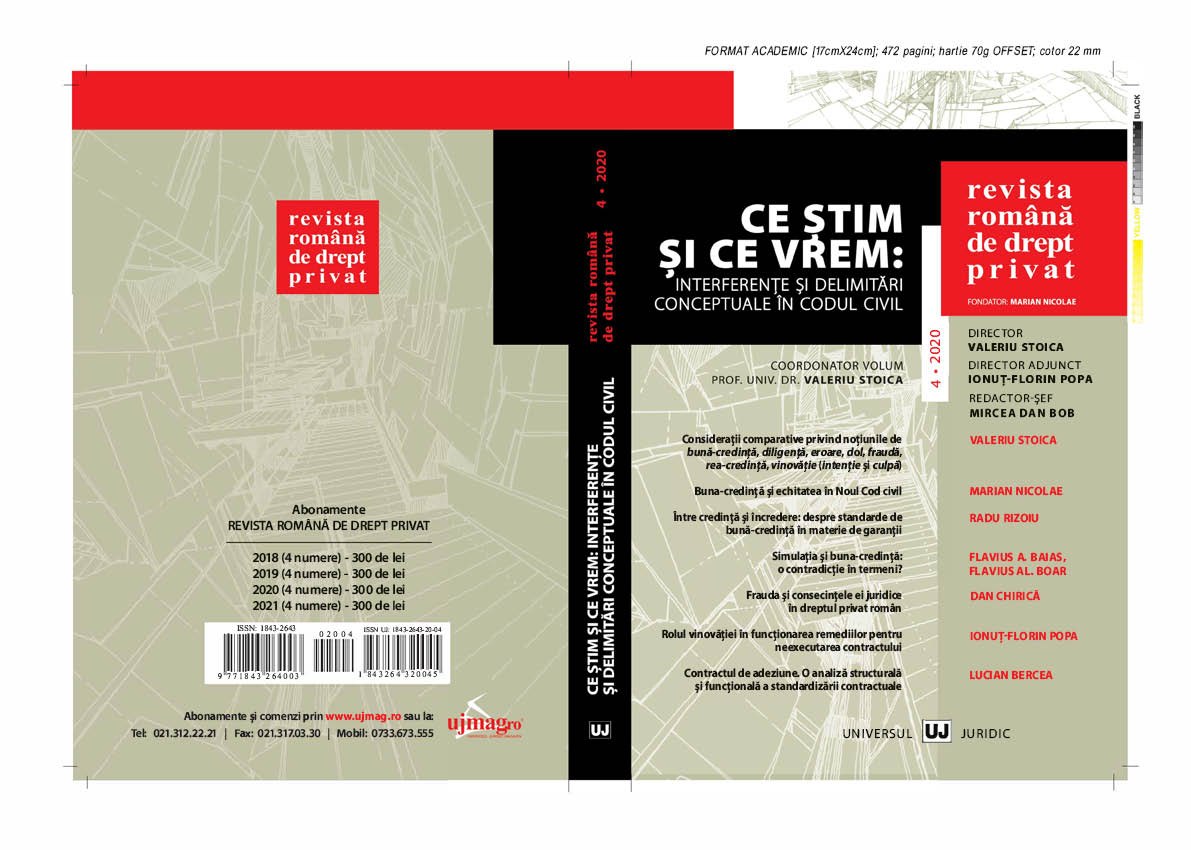Rolul vinovăţiei în funcţionarea remediilor pentru neexecutarea contractului
Role of culpability in the operation of remedies for the non-performance of the contract
Author(s): Ionuţ Florin PopaSubject(s): Law, Constitution, Jurisprudence, Civil Law
Published by: Universul Juridic
Keywords: bona fides; good faith; culpam praestare; damages; plea of non perfor¬mance; performance in kind; force majeure; accidental impossibility of performance; intent;
Summary/Abstract: The principle of guilt is traditionally considered as being the basis of civil liability. In contractual matter, for a long period of time, it was considered that the rights of the creditor under the assumption of non performance were conditional upon the existence of the guilt of the debtor in non execution. The entry into force of the New Civil Code offered the opportunity of a broad based discussion related to the conditions for applying remedies for the non performance of the contract. The essence of these debates is represented by the condition itself of the guilt in the activation and operation of remedies. The study aims at demonstrating that, actually, the opposition existing between the subjectivist thesis (according to which guilt is a condition of remedies) and the objectivist thesis (which states the opposite) is without a real practical stake. In essence, guilt remains a simple condition of a form of contractual non performance – breach of contract –, and not a condition of activation of remedies. On the other hand, remedies are subject to a variety of rules which often make it difficult their suitability for the legal situation called into question. Although factualism underlies the application of remedies, a set of rules applicable to the entire system of remedies is identifiable starting from the assumption that the suitable remedy is found for any non performance.
Journal: Revista Română de Drept Privat
- Issue Year: 2020
- Issue No: 04
- Page Range: 340-366
- Page Count: 27
- Language: Romanian
- Content File-PDF

